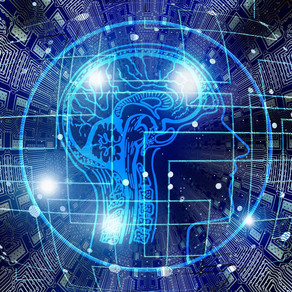The DLR School Lab at TU Dortmund University
Research experiments at the Faculty of Computer Science
Since November 2008, the motto at the Technical University of Dortmund has been: "Out of school - into the lab!"
Concept of the DLR_School_Lab
There is a shortage of qualified young scientists and engineers in Germany. The DLR_School_Lab is designed not only to give pupils the opportunity to get interested in a specialist field at an early age, but also to offer a challenging and practical supplement to science lessons. This added value compared to traditional school lessons is intended to arouse curiosity in mathematical and scientific questions and thus help pupils to recognize their interests and orientations in various subject areas. This can not only create an incentive to study engineering and natural sciences (computer science), but practical experience with current research topics can primarily have a supportive effect on study guidance.
One advantage of the DLR_School_Labs is that the experiments are divided into thematic worlds in order to appeal to pupils with different areas of interest. Experience research-related experiments in an authentic environment: A new and exciting experience in everyday school life. The DLR_School_Lab conveys the importance of science for solving everyday problems and at the same time provides an insight into everyday working life at a research facility.
So far, the DLR_School_Lab at TU Dortmund University has established four subject areas:
- Robotics and virtual worlds
- Energy
- Space
- Structure of matter.
In total, various experiments are available from these subject areas, the implementation of which is supported by the staff of the various departments.
Computer science in the DLR_School_Lab
The Faculty of Computer Science is currently conducting the following experiments in the field of robotics and virtual worlds
- Haptic interaction with the question: "Can you feel something that doesn't exist?" (Dr. Frank Weichert) and
- Stereoscopic 3D representation with the question: "Where is the future of 3D representation heading?" (Dr. Frank Weichert)
supervised.
You can find these and other experiments as well as everything about registration here:

![[Translate to English:] [Translate to English:]](/storages/zentraler_bilderpool/_processed_/d/f/csm_Informatik_275ba5e5fc.jpg)

![[Translate to English:] [Translate to English:]](/storages/zentraler_bilderpool/_processed_/1/b/csm_Figuren-nachdenklich_e2435967dd.jpg)
![[Translate to English:] [Translate to English:]](/storages/cs/_processed_/6/f/csm_teamwork1_e113f5f13b.png)
![[Translate to English:] [Translate to English:]](/storages/cs/_processed_/e/1/csm_header_ee496f74bf.png)